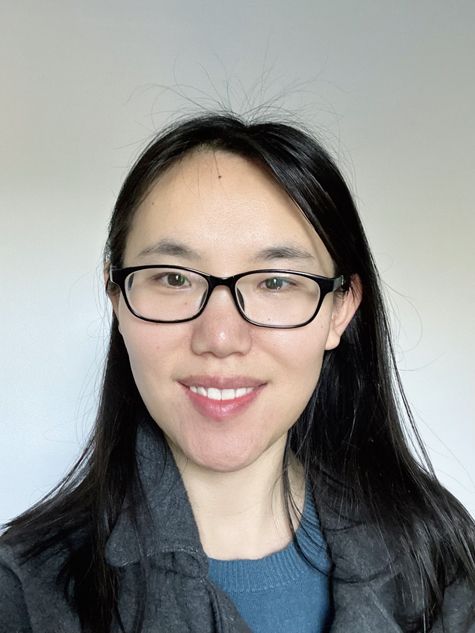Early Career Scientist Spotlight
Dr. Guoqing Wang (she/her/hers)
Oceanographer
Ocean Ecology Laboratory (616)
What is your research focus?
My research is focused on ocean color remote sensing. I use light signals captured by satellite sensors to monitor water quality and retrieve information about the inland and oceanic water. You may have seen green pond water, a tan river mouth, or deep blue sea. The different colors of the water are due to the variability in light signals reflected or backscattered by their constituents (such as phytoplankton, sediments, dissolved matter, and water molecules). Phytoplankton, as an important constituent of a body of water, have a major effect on water color and are one of the primary reasons for studying it. Phytoplankton live near the water surface to capture sunlight for photosynthesis and act as the primary producer of the ocean. They form the bottom levels of the marine and aquatic food webs, and their existence not only makes life in the water possible but also makes the ocean an important food source for mankind. How they vary over space and time is what I am interested in. I collect samples, analyze them, and develop geophysical algorithms to derive phytoplankton and other constituents’ optical information from remote sensing data.
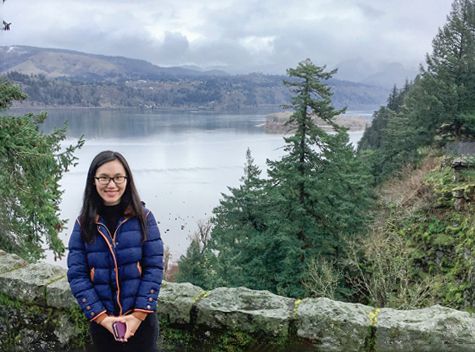
Credit: Guoqing Wang
Did you always know that you wanted to be an oceanographer?
Being a scientist was a childhood dream for me, but I never thought of being an oceanographer. It was a nice and rewarding journey becoming an oceanographer. I got the chance to take a close look at the ocean. I saw the light, deep blue sea, and the beautiful night sky.
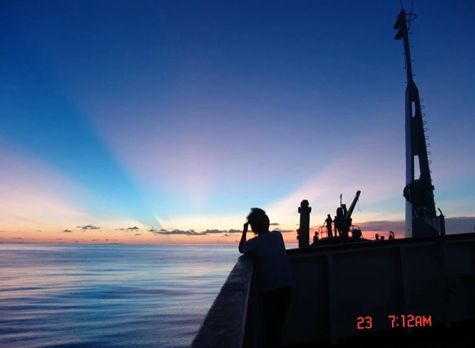
Credit: Guoqing Wang
What inspired you to pursue a career in ocean color remote sensing?
The ocean and satellite technology. I grew up in an inland city and I saw the ocean for the first time as a freshman during a summer internship. I was as amazed as anyone who sees the sea for the first time. I sat there and admired it for hours. Water is amazing - it is shapeless, while so powerful. At that time, I was pursuing a Bachelor’s degree in Geography.
Years later, I had the opportunity to play with remote sensing images. I was amazed by the beautiful view that remote sensing provides - the large scales and the detailed features. I fell in love with it immediately and decided to pursue a graduate degree in remote sensing. Fortunately, I was accepted as the one and only student in the university to a Physical Oceanography program to study the ocean using remote sensing data. I finished the program with a Master’s degree in Physical Oceanography and many opportunities to observe and assist optical scientists and engineers during instrument development, data collection and analysis. Then, I continued ocean color remote sensing research in a Ph.D program where I received systematic training and started a career in this field. I am fortunate to have always been surrounded by outstanding scientists and engineers who keep me inspired.
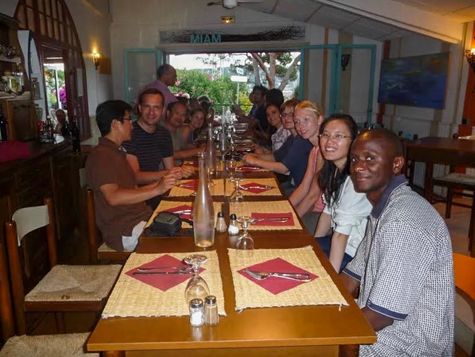
Credit: Guoqing Wang
What aspect of your work excites you the most?
In addition to research, as an OB.DAAC (Ocean Biology Distributed Active Archive Center) scientist, a big part of my work is communicating with software engineers, scientists, and users. I think this is the most exciting aspect of my work. I love interacting with people. I have been a data user for years, which helps me understand their needs. To me, helping the ocean color community access the data and tools we provide and assisting them in answering their scientific questions are more exciting and rewarding than publishing papers myself.
What is one thing you wish the public understood about your field of work?
Ocean color remote sensing is far from daily life. People usually don’t know what ocean color is other than the color they use for drawing or painting. When I chat with people about the research I am working on, they usually ask something about the beach and water that they are familiar with. I remember once, in a meeting, I talked to a person who was putting up a global map with the ocean in constant blue color. I asked him “do you know that the ocean also has different colors?” He was very surprised. I told him that I am working on remote sensing of ocean color, and that the color of the water can vary depending on different situations or conditions. That led him to ask another question: “Isn’t water just water?” Well, the natural water body is more than just water molecules. It holds many visible and invisible, dissolved and suspended matters in it. I hope more and more people get a chance to learn about this interesting field.
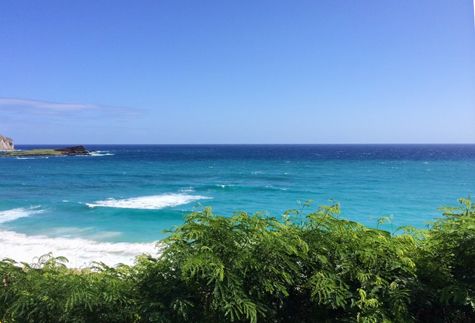
Credit: Guoqing Wang
What is one space mission that you are particularly excited about, and why?
The NASA Plankton, Aerosol, Cloud, ocean Ecosystem (PACE) mission is the one that I am particularly excited about. The highly advanced hyperspectral ocean color sensor on board will measure properties of light over ultraviolet to shortwave infrared portions of the electromagnetic spectrum. It will facilitate scientific works that were not possible with multi-spectral missions.
What do you like to do in your free time?
Hiking, traveling, and being a mom. I have a 4-year-old girl who attends the NASA Goddard Child Development Center (GCDC). It is amazing to see her learning so many new things every day. It reminds me of my childhood. I enjoy spending time with her and my family. I just cannot wait to show her all the interesting places I have been and tell her about the things that I have learnt in life.
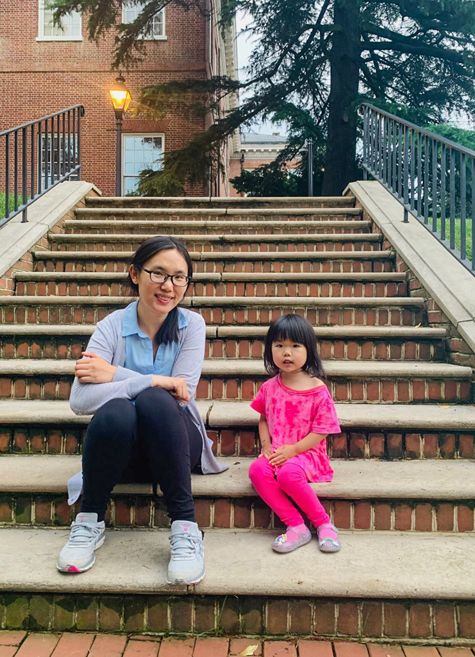
Credit: Guoqing Wang
Biography
Home Town:
Hebei Province, China
Undergraduate Degree:
Normal University, Hebei, China
Post-graduate Degrees:
M.S, Chinese Academy of Sciences (South China Sea Institute of Oceanography), Canton, China
Ph.D, University of Massachusetts Boston, Boston, MA
